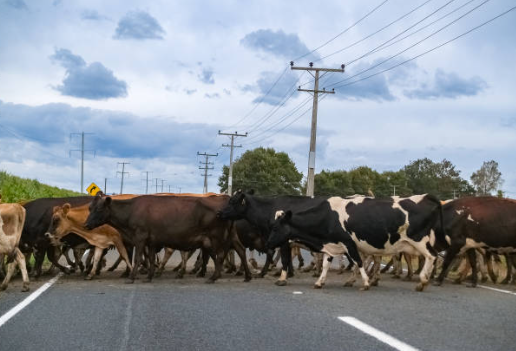Gypsy Day
It’s moving day! Traditionally known as Gypsy Day, 1 June marks the beginning of a new dairy season which brings a lot of movement around the country.
On or around 1 June, we might see the following activity around the country, particularly in rural communities:
- Sharemilkers pack cows into stock trucks and move their families and equipment to new farms around the country.
- Dairy farmers, contract milkers and employees move to new farms to start their jobs for the season.
- It’s the traditional progression in New Zealand’s dairy industry.
- The majority of sale and purchase agreements for dairy farms go through.
- Dairy Farmers move cows to their winter grazing locations.
Goldie Wardell has claimed he introduced the term ‘Gypsy Day’ to the traditional moving day in the 1980’s. He recalls seeing a farmer walking in front of a herd heading toward a farm gate on the side of the road, while he was driving along a metal road in Northland.
“As soon as I saw the farmer I slowed right down because I knew there’d be a herd of cows coming along the road and sure enough, there they were, ambling along. There were a couple of children quietly walking alongside the cows, just pushing them along the road with no fuss.
“Next, behind them all came mum, driving the car towing a trailer behind it, full of the family’s belongings. The car was overflowing, the trailer was packed high with furniture and boxes and buckets, everything you could imagine teetering on top and hanging over the sides.
“I thought of Gypsies, packing up their home and moving to another farm.
“It was a sight I’ll never forget, but also one you used to see many times.”
On National Radio the following day, Wardell recalled the scene and said Moving Day or Sharemilkers’ Day could just as well be called Gypsy Day. The term stuck and spread.
Gypsy Day is still a common term used within the farming community for the mass movement of stock on 1 June. However, the expression has caused offense and some people believe it has undertones that aren’t in tune with New Zealand society today.


Leave a Reply